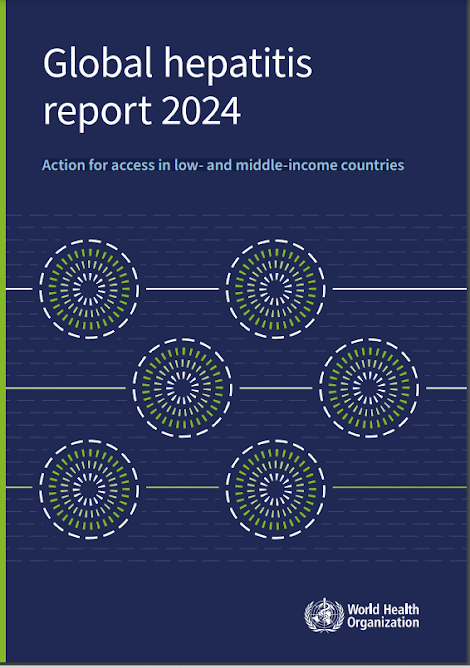FORUM: "It’s time for action." World Hepatitis Day 2024. With a person dying every 30 seconds from a hepatitis-related illness, we must accelerate action on better prevention, diagnosis, and treatment to save lives and improve health outcomes. There are 5 main strains of the hepatitis virus – A, B, C, D, and E. Together, hepatitis B and C are the most common infections and result in 1.3 million deaths and 2.2 million new infections per year. Despite better tools for diagnosis and treatment, and decreasing product prices, testing and treatment coverage rates have stalled. But, reaching the WHO elimination goal by 2030 should still be achievable, if swift action is taken now. Follow the conversations with the hashtags: #worldhepatitisday, #28July, #hepatitis, #by2030.
EVENTS: On July 28th; The World Hepatitis Day 2024 will be held online from 13:00 – 15:00 CET. The webinar will feature WHO leaders and high-profile speakers in a multi-stakeholder discussion to share country examples and solutions that highlight the importance of the liver for a healthy life and the need to scale up viral hepatitis prevention, testing and treatment to optimize liver health, prevent liver disease and achieve the 2030 hepatitis elimination. It will highlight the importance of a public health elimination approach and upcoming complementary guidelines update that has the potential to change the trajectory of the hepatitis B response. Hosted by the World Hepatitis Alliance, the World Heath Organization (WHO), the WHO/PAHO; the WHO Europe, the WHO SEARO, the WHO EMRO, the WHO WPRO and the WHO African Regional offices with the participation of the Centers for Diseases Control and Prevention (CDC).
On July 29th, from 12:30 – 14:30 pm (CEST), the WHO is organizing a global webinar on the campaign theme It's time for action, and sub-theme Global hepatitis response: Closing the gap towards the 2030 elimination goals. This broad theme highlights the fact that progress, as well as action, have stalled and that the global health community needs to get back on track toward viral hepatitis elimination by 2030. This global webinar will provide spotlights and country progress on access from communities, and partners, as well as new approaches for increased case finding for hepatitis B and C and for transforming the hepatitis B response to a public health approach. It will feature high level international and national leaders with participation of Ministers of Health, national programme managers and policy makers, UN organizations, implementation agencies and regional and country office colleagues as well as civil society and people with lived experience and other partners. It is time for action to accelerate the reduction in new hepatitis infections, stem the decreasing mortality and aid countries in achieving the goal of elimination by 2030. Register here!
On July 25th; As part of the activities, the WHO/Europe will host a webinar focusing on the new recommendations for hepatitis B, including the broader eligibility for treatment and how countries are planning to implement these changes in their national programmes. Webinar registration.
On July 25th; As part of the activities, from 11:00 a.m. - 12:30 p.m. (EDT, Washington D.C.), the PAHO will held a webinar; Our regional effort to eliminate viral hepatitis is strategically aligned with PAHO's Communicable Disease Elimination Initiative. This initiative represents a significant opportunity for governments, communities, and stakeholders to join forces and work together to eliminate more than 30 communicable diseases and related conditions in the Americas by 2030. The World Hepatitis Day also seeks to highlight the support of key stakeholders in this effort, as well as to share good practices and experiences from PAHO Member States. Read the agenda programme and watch the livestream!
PUBLICATIONS: Global Hepatitis Report 2024 - Action for access in low- and middle-income countries. This report presents the latest estimates on the disease burden and the coverage of essential viral hepatitis services from 187 countries across the world.




No comments:
Post a Comment